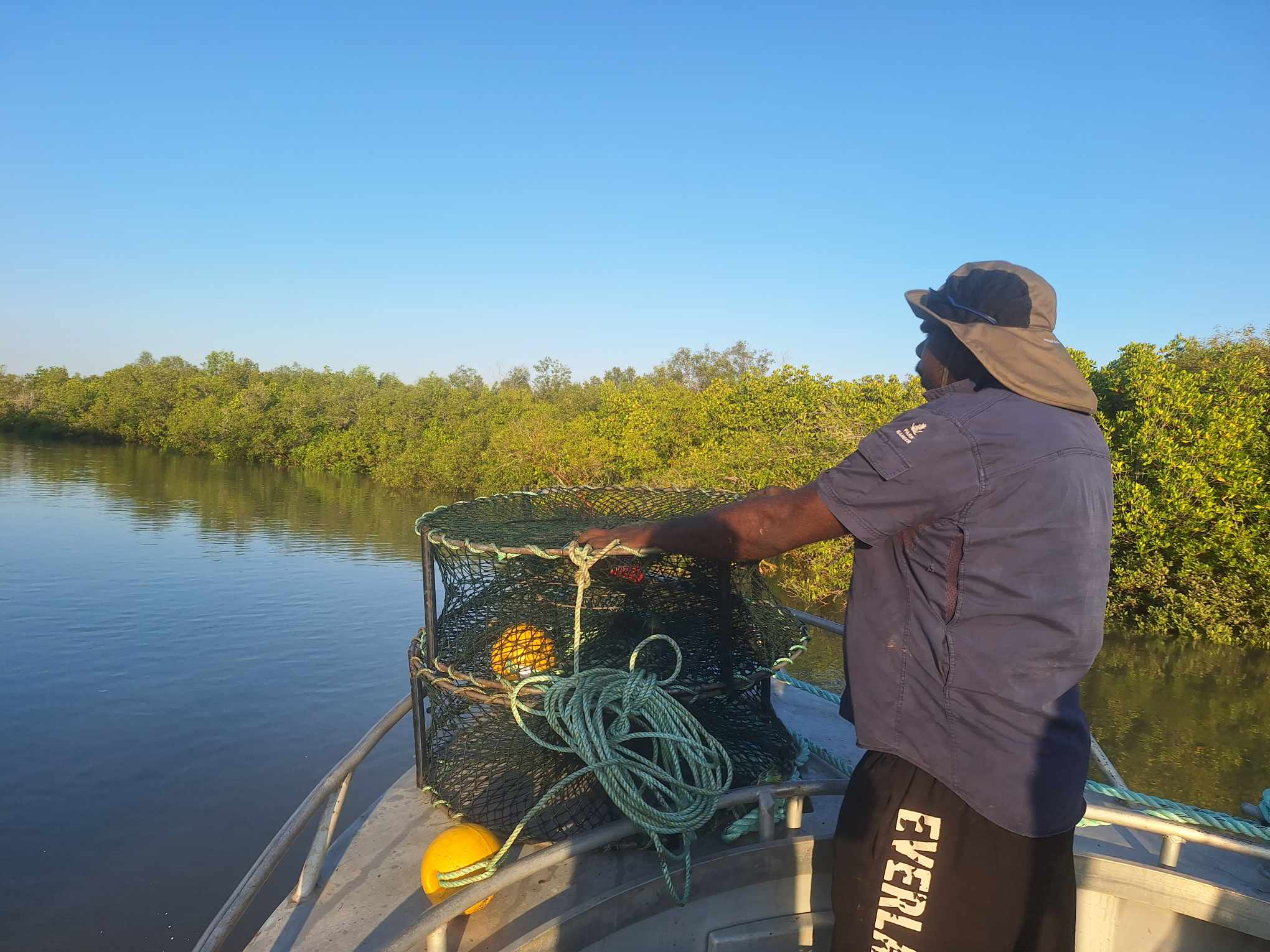A new research project is working with Aboriginal communities to gather biological data on two mud crab species in Western Australia to help develop local fisheries and provide economic opportunities for Indigenous communities.
Fisheries targeting the Giant Mud Crab (Scylla serrata) and Orange Mud Crab (Scylla olivacea) in Western Australia’s Kimberley region do exist but are yet to reach their full potential.
New data being gathered is expected to provide the foundation for further development that will support new opportunities for local Indigenous communities.
FRDC and the Western Australian Department of Primary Industries and Regional Development (DPIRD) have co-funded the project (2022-138) to address the underutilisation of mud crab fisheries in the Kimberley region. Beginning in July 2023, the project is building working relationships with local Traditional Owners.
In October 2022, DPIRD staff did a pilot Mud Crab trapping survey to develop field logistics and sampling methodologies at King Sound with support from local Madanaa Nada community members.
The three-year project will determine the biology, abundance and distribution of Brown Mud Crabs and Green Mud Crabs at King Sound and Cambridge Gulf.
Principal Investigator Dr Danielle Johnston from DPIRD says it is the first-time researchers have had the opportunity to collect any biological information on the Mud Crab species in Western Australia.
“The data we collect is going to inform what management is put in place regarding the effective use of the fisheries,” Danielle says. “This includes sustainability of the stocks, trap allocation for the Aboriginal communities and harvest strategies.”
“We’re examining habitat types such as mangrove creeks and channels, and mudflats, as well as establishing the best times and conditions to set and remove traps in the tidal cycle. We are looking at a broad range of biological parameters to develop a good picture of where the best sites are for commercial fishing in the future.”
A primary focus of the project is transfer of knowledge between Traditional Owners and DPIRD. Economic opportunities from fisheries for Aboriginal people is a high priority both for DPIRD and FRDC.
Danielle says information from the two research sites will be shared with Aboriginal communities in surrounding areas that are interested in Mud Crab fishing and developing their opportunities.
“This is a collaborative process, we want to build our relationships, share knowledge and help the local communities make the most of their resources.”

A second survey took place in September 2023 in Cambridge Gulf, working closely with local Balanggarra and Miriuwung Gajerrong rangers. Future surveys are planned in King Sound and Cambridge Gulf and will continue to engage with a wider group of Indigenous saltwater communities in the Kimberley area.
FRDC Research Portfolio Manager Adrianne Laird says that due to the remoteness of the area, building capacity in the local Aboriginal communities has been a crucial aspect of the project.
“Involving the Traditional Owners and local Sea Country rangers from the beginning has been really important and there has been a high level of engagement and participation,” Adrianne says.
“The Sea Country rangers have been assisting with the surveys, providing a great opportunity for them to increase their research capabilities and also get a better understanding of the local Mud Crab resource.”
Adrianne says that while there has been a more significant amount of research done on mud crabs on the east coast, there is a large gap in knowledge on Mud Crabs in the Kimberley region.
“This research project aims to fill in that knowledge gap on mud crab biology and to have Traditional Owners involved. It can help support the development of an Aboriginal Mud Crab fishery, as well as provide opportunities for the commercial and recreational sectors.”
FRDC Project 2022-138: Developing a Kimberley Aboriginal Mud Crab Fishery





